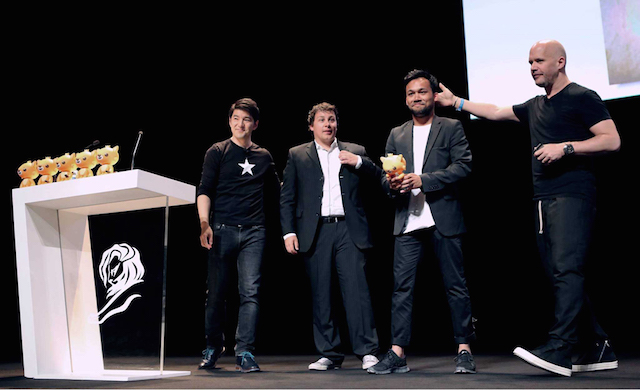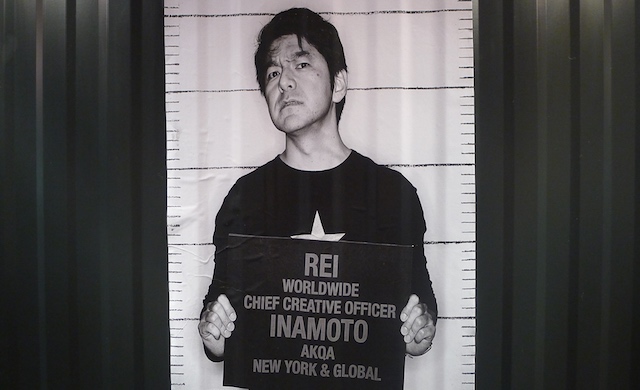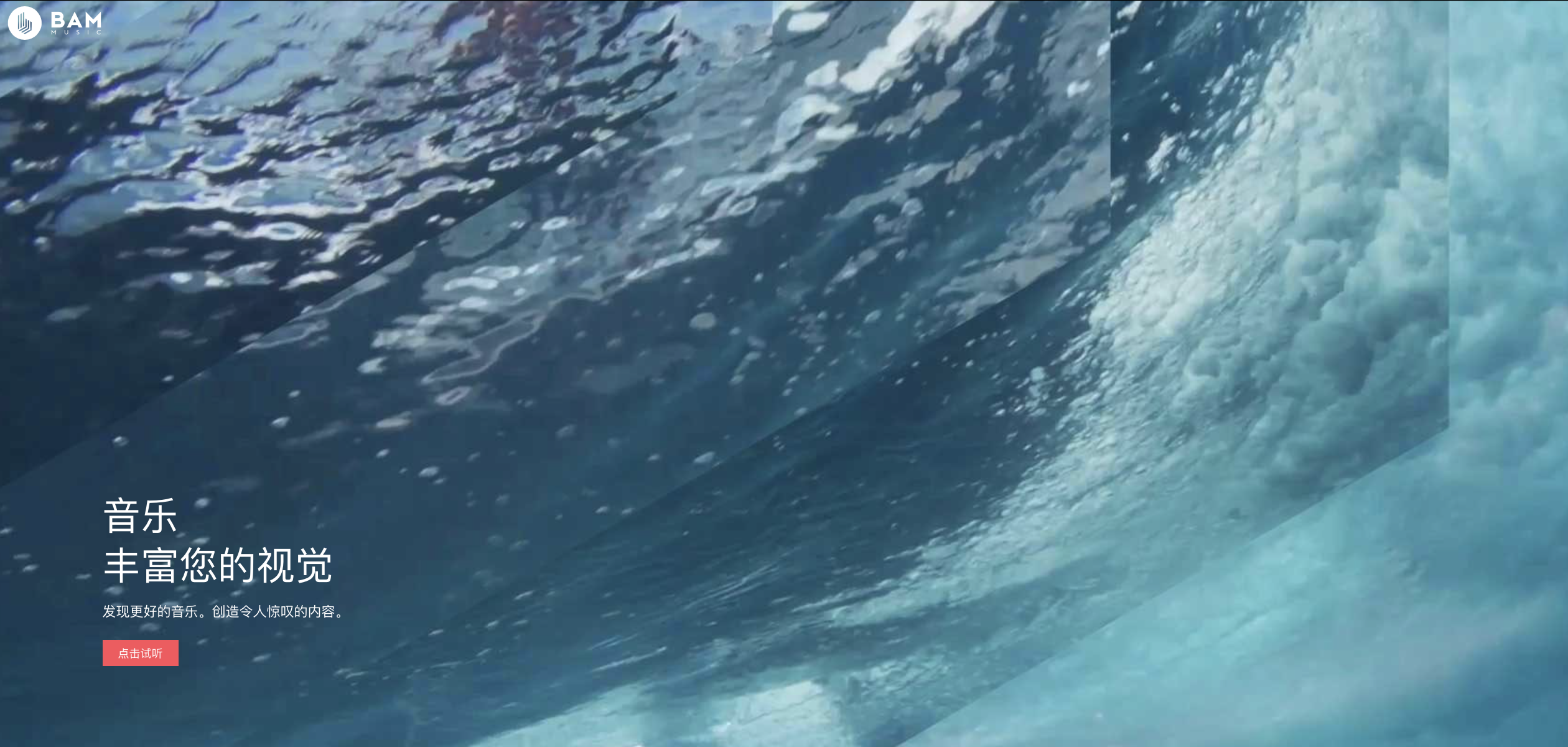The leading luminary at this year’s ADFEST is Rei Inamoto, who served as Grand Jury President and the President of Interactive and Mobile categories. Named in Creativity Magazine’s annual “Creativity 50” as well as one of “the Top 25 Most Creative People in Advertising” by Forbes Magazine, Rei Inamoto is one of the most influential individuals in the marketing and creative industry today. Born in Japan, Rei moved to the United States as a sixteen year old. He has been with AKQA, where he is now Chief Creative Officer, for over 10 years of the agency’s 20 year history overseeing work that has powered its ballistic ascent. We sat down with him on the final day of the festival.
How did you get your start at AKQA?
When I joined AKQA I didn’t even know AKQA. Nobody knew AKQA. Ten years ago we were about 250-275 people globally split between three offices: San Francisco, London and Washington DC. I joined to open the New York office, and since then we’re up to 14 offices and 1,800, 1,900 people.
Why did you want to come to ADFEST?
The first thing that comes to my mind is to help make Asia become the global powerhouse that it should be. The nice side of events like this is to celebrate work, to meet people, all those kinds of things but for me, because of my heritage, I would like to see Japan and Asia be a formidable powerhouse in the world. I’d like to be able to mentor and give back to the Asian community, for people to see somebody like me and pass on the torch to work on the international stage, not just on a local level.
It’s especially impressive when people succeed in different countries, speaking different languages, in the creative industries, which depend so much on communication.
Before AKQA I was at R/GA. About two months into my time there the Creative Director who hired me left. I’m like holy shit — I joined partially because I was so impressed by this guy. Because I became, at a very young age, one of the senior creatives, I was presenting work to clients and I had a lot of trouble because English isn’t my first language. I thought instead of trying to overcomplicate what I say in English, let me just say what I can understand. That, in hindsight, became a way for me to explain things in simple terms, to boil down to the bare essentials. Can you explain things in 200 words, or three words or five words. Indirectly, that became my mental training to reduce and simplify.
Living in China, I use a VPN to access Youtube, which diverts my web traffic through Japan. That means I see Japanese commercials, and there’s a trend of these incredible TVCs, resembling Rube Goldberg machines that really capture the imagination. To my tastes, it seems Japan is already doing some of the best work in the world.
This is one thing I like and dislike about the American point of view. The Americans have on one side a very confident view of themselves and their country and they almost assume, naively, that they are the leader of the world. In Asia it’s the opposite; there’s a lack of confidence, or to put it in a good way, Asian people are humble and respectful. This is my first time in Thailand but people are so hospitable and so respectful — the level of humility and respect is something you don’t find in Western culture.
That humility seems in marked contrast to Cannes Lions, which people often describe as exclusive and snobbish.
It’s much more laid back here, people are much more accessible, and people are taken care of. I was amazed by the fact there’s that big room with 100 tables so you can go there, hang out and meet people. In Cannes, even if you’re a judge, they don’t pay for your travel. They do pay for your hotel, but only when you’re judging. If you’ve finished judging, you’re on your own. Go away.
June 2014. Future Lions Award Ceremony, founded by AKQA, 9 years ago, and is now a partnership between AKQA, Google and Cannes Lions.You’ve written columns arguing that agencies now have to be product and service designers. But with the massive rewards that come from simple ideas these days, what’s to stop agencies working for themselves instead of brands?
It’s a possibility, whether it’s AKQA or anybody else, but the business model would have to change a little bit. Advertising and marketing has a very short attention span. Lets spend a hundred thousand dollars or a million dollars this quarter, let’s say, and I want to see a return on investment within a month or two. If you make a video and get a million views within a couple of weeks that’s great. When venture capitalists invest, they’re looking for the next billion dollar company in the next five to ten years.
Have you had ideas you thought were too good to give a client?
No, if I think it’s a good idea I’ll always present it to a client. Clients may not buy it, or if they buy it and we execute it, it may end up as a marketing campaign and not a product with longevity. But to be fair these are products that we’ve sold. We created this app called Nike Training Club, about four years ago to answer the question of if we could provide the most meaningful and compelling training via phone. Now Nike Training Club is an app, it’s a gym, it’s an event — it’s a lineup of things. It was never intended as a marketing stunt. It was providing a continuing service and the client was behind it to keep it alive for a long time.
Nike seems like a great client. Shanghai’s House of Mamba project — a light up basketball court that shows players to do drills as if they were with Kobe Bryant — is impressive. Is that project ongoing?
It was an eight week program where we auditioned and selected some of the most passionate basketballers from all over China. We chose 30 to bring to Shanghai to go to the House of Mamba, and then Nike flew three of them to the world championship game in Barcelona. It was about giving access to these kids who otherwise don’t have the facilities and the kind of training that players in the US have.
House of Mamba won the Grande prize here in the Interactive category, for which you were Jury President. Is it unusual for a judge to be on the panel that gives an award to his or her own company?
It is unusual, so I made sure to not only abstain but step out of the discussion. It went down to two winners, and it was a tie, so I said you guys need to keep discussing this. At that point House of Mamba became the unanimous winner.
You think it’s the best?
I’m biased, but it edged ahead. I asked the jury panel what’s the work that pushes the industry forward, and what actually contributes to people’s lives and society. When it came down to the gold winners, others were more or less a piece of advertising. One of the gold winners in Interactive was “Nike Cricket” — a beautiful film, really well done, but the end result was an ad, that was it. The way it was made was very, very interesting and very innovative — they crowd sourced players and their photos, but the end result was an ad. Another one was the I Touch Myself campaign. Beautiful, beautiful campaign, but that’s what it was: a campaign to build awareness. What did you do beyond that?
At the press conference yesterday you really emphasized that the awards shouldn’t all go to work that was made pro bono.
It’s aspirational to say that every work should be for the social good or give something back. But if you’re doing something for charity you should be passionate about that cause. Whether to enter it for awards or not should be a secondary or tertiary question. We are professionals, we get paid for our creativity, we get paid for our strategic thinking, we get paid for the work we produce. Otherwise we are diminishing the importance of our profession. If we can do a ten million dollar campaign for free, why should a client pay 100,000 dollars?
As a journalist that rings true. You make all your content free and then what’s left?
There are amateur athletes and professional athletes. Amateur athletes and professional athletes play the game they play, whether it’s baseball or basketball or whatever, for the love of that sport. But the reason why they are professional is because they’re so damn good that people pay them to perform. To me it’s as simple as that.
今年亚太广告节上最耀眼的人物无疑是担任评审团主席和交互及移动类的评委Rei Inamoto(稻本零)。他入选过《创意》杂志的“年度创意50”、又入选《福布斯》杂志“最富创意的25个广告人”的榜单,是当今营销与创意产业领域最具影响力的人物之一 。Rei Inamoto出生在日本,16岁时移居美国。在成立仅有20年左右的AKQA里他的工龄却超过了10年,现任AKQK的全球创意总监。他见证了公司火箭般的发展和扩张。在泰国举行的亚太广告节上,SHP+很荣幸地与这位著名的创意人做了个采访。
>>> 你是怎么在AKQA开始的?
加入AKQA的时候我根本没听说过它。事实上当时没什么人听说过AKQA。十年前我们全球大约只有250-270人,分布在全球的三个地方:旧金山、伦敦和华盛顿。我加入时参与了纽约办公室的筹建。在此之后,我们不断地发展, 到了现在在全球拥有14个办公室,约1800-1900名员工。
>>> 为什么会参加亚太广告节?
我首先想到的是:“我要助亚洲取得它在全球应得的地位,就是成为全球广告中心之一”。 广告节有许多好的方面,比如一起庆祝优秀作品、结识同行,诸如此类,但对我来说却并非这么简单。由于我血源的关系,我希望看到日本和亚洲在世界广告业变得强大。我希望可以分享我的经验和回馈亚洲(广告人)社团,让人们看到像我这样的人在国际舞台上传递亚洲广告业的火炬,而不仅仅局限在本土的水平。
>>> 能够在异国他乡这样不同的语言环境里获得成功的人特别让人敬佩,因为在创意产业里交流是特别重要。
在加入AKQA之前我在R/GA工作。在进入AKQA大概两个月的时候,招我进来的那位创意总监离职了。我当时简直要抓狂了——我跳槽的部分原因是我特别欣赏那家伙。我还很年轻就做到了高级创意的位置,我需要向客户提案,但英语不是我的母语,这一点给我造成了很大的困扰。所以我决定尽量不要用英语表达过分复杂的想法,表达我懂的就行了。后来这就成为了我的一种策略,尽量用简单的语句解释事情,提纲契领。你能在200字以内甚至三言片语解释你的概念吗?慢慢地,这也变成了我对提炼和简化事物的训练。
>>> 在中国,我必须用VPN翻墙到日本的网路才可以 上YouTube。在我看到的日本广告里,有相当一部分的广告就像鲁布·戈德堡(Rube Goldberg) 的装备一样,充满了幻想。我认为日本已经创作出一批世界上最优秀的作品。
这正好说到了我对美国人的一些既爱又恨的看法——美国人一方面对自己和美国感到无比的自信,甚至幼稚地认为自己是世界的领导者;而亚洲人则正好相反;这片土地缺乏自信,或者说得好听一点,亚洲人待人谦虚恭敬。这是我第一次来泰国,这里的人非常热情好客、非常有礼貌——谦卑和恭敬的程度是你在西方文化里找不到的。
>>> 这种谦逊和戛纳广告节的氛围形成鲜明的反差,戛纳广告节通常被形容为“排外”和“势利”。
这里(亚太广告节)更放松,周围的人亲切友好,服务也很好。比如在一个有100桌人的地方,你可以随意地走动,结识朋友,彼此交流。在戛纳,即使你是评审,他们都不会为你付差旅费,只付酒店费,当然前提是你必须是评委。一旦评审结束你就得赶紧走人 。
>>> 你曾在你的专栏里提出过,广告公司应该成为产品和服务的设计师。但是实际情况是,简单的创意现在都可以获得不少回报,你觉是什么令广告公司不再为自己而是为品牌创作?
有这种可能。无论是AKQA还是其他公司,但是他们的商业模式首先得有所改变。广告和市场营销活动(对消费者)的吸引力是短期的。例如,如果我们在这个季度花了成千上万,甚至上百万美元,我就会期待在一至两个月之内看到投资回报。如果你制作的视频两三周之内突破百万浏览量那就最好。风险投资者作投资时,他们寻找的目标通常是能在未来五到十年内能增值到十亿美元的公司。
>>> 你有没有过曾经因为觉得创意太过出色而不想卖给客户?
没有,要是我觉得那是个好主意,我肯定会提给客户的。客户不一定要,或者他们要了这个创意,我们也做了,但最后沦为一次市场营销活动,而非一个有生命力的产品。但是要公平地说,那就是我们卖出的创意。四年前,我们推出了一个“耐克训练俱乐部”的APP,是为我们测试一下手机终端上是否可能提供有意义和吸引力的锻炼(数据),现在“耐克训练俱乐部”不仅仅是一个APP那么简单了,它是一个健身房,是一个活动——它衍生了一系列产物。我们从来没有把个产品作为营销的噱头,但它提供了不间断的服务,以及客户一直在背后经营,使这个产品存活了相当长的时间。
>>> 耐克看起来是个好客户。上海的“曼巴之屋”项目就非常惊艳——一个用视觉化LED筑起的篮球场,为球员呈现出仿佛他们和科比·布莱恩特在一起训练的效果。这个项目还在进行中吗?
那只是一个为期八周的活动,我们通过海选挑出了一些从中国各地而来的最有热情的篮球运动员。我们选了30人,把他们带到上海的“曼巴之屋”,随后耐克会再带其中的3个人去巴塞罗那参加世界冠军赛。这个项目是为了给那些缺乏设备的孩子提供机会,让他们可机会像美国球员那样训练。
>>> 这此“曼巴之屋”赢得了交互类大奖,而你恰好是这个奖项的评审团主席。 这种做法否有些不太正常呢?
的确有些不寻常。所以我不但弃权(投票),而且退出了讨论。焦点最后集中在了两个提名片之中,两者差不多打成平手,于是我说,你们得继续讨论出个结果。最终全体意见达成一致,“曼巴之屋”成了无可争议的赢家。
>>> 你认为成为最佳是实至名归吗?
我不能完全公正地去评论,但它的确是领前的(创意)。我问评审团,什么样的作品会推动整个产业向前发展,又究竟是什么的作品对人们的生活和社会有贡献的?实际上,说到金奖得主,其他作品或多或少都带着广告的痕迹。其中一个交互类金奖作品是“耐克板球”——一个非常好的广告,制作真的很出色,但最终它也只是一个广告。它的创作过非常有趣,也非常富有创新——他们用了许多真实的运动员和他们的照片,但最终它只是一个广告。另一个是“触摸自己”活动,非常有意义,它的目的是提高(防癌)意识,仅此而已。
>>> 在昨天的会议上,你特别强调不需要把所有奖项都颁给无偿作品。
如果每件作品都对社会有益或有所回馈当然是很让人振奋。事实上,如果你是慈事,你就应该你的目标满怀热情。至于这个作品会否能入围并得奖,这应该是次要的问题。我们是专业人士,我们以创意、策略思维和我们的作品获得报酬 ,否则我们就是在削减我们专业人士的重要性。要是我们可以免费打造一个过千万美元的活动,客户为什么甚至要给付我们十万美元?
>>> 记者也是一个道理。如果所有内容都是免费的,还我们凭什么生存?
世界上有业余运动员和专业运动员之分。无论业余还是专业,无论是打棒球还是篮球,还是其他运动,都是出于对这项运动的热爱。但专业选手之所以成为专业选手, 是因为他们的表现特别顶尖,人们才愿意付钱去看他们。对我来说,道理就这么简单 。







 BAM Music Library Brings Edgy, Indie Sounds to Chinese Creatives
BAM Music Library Brings Edgy, Indie Sounds to Chinese Creatives
